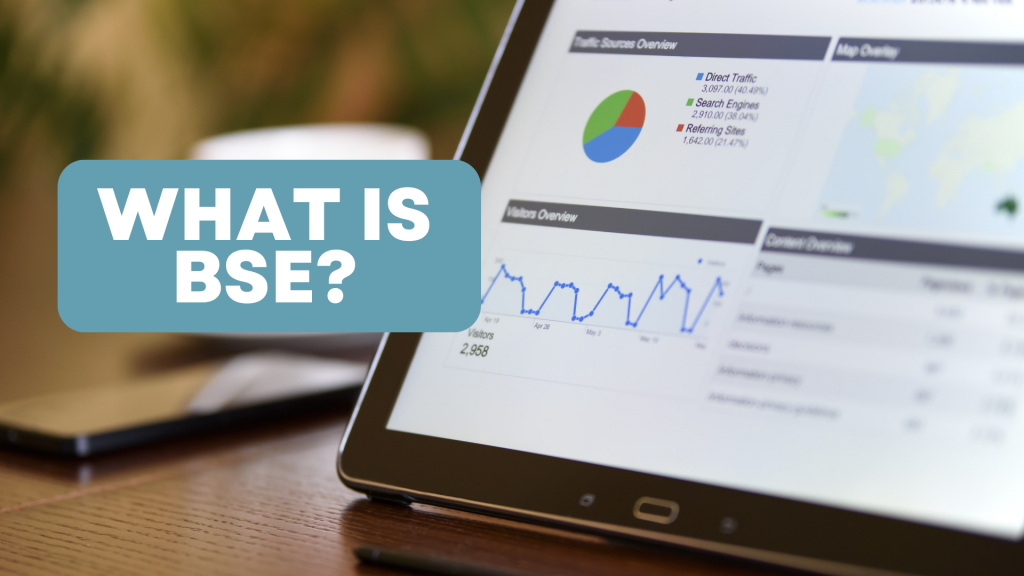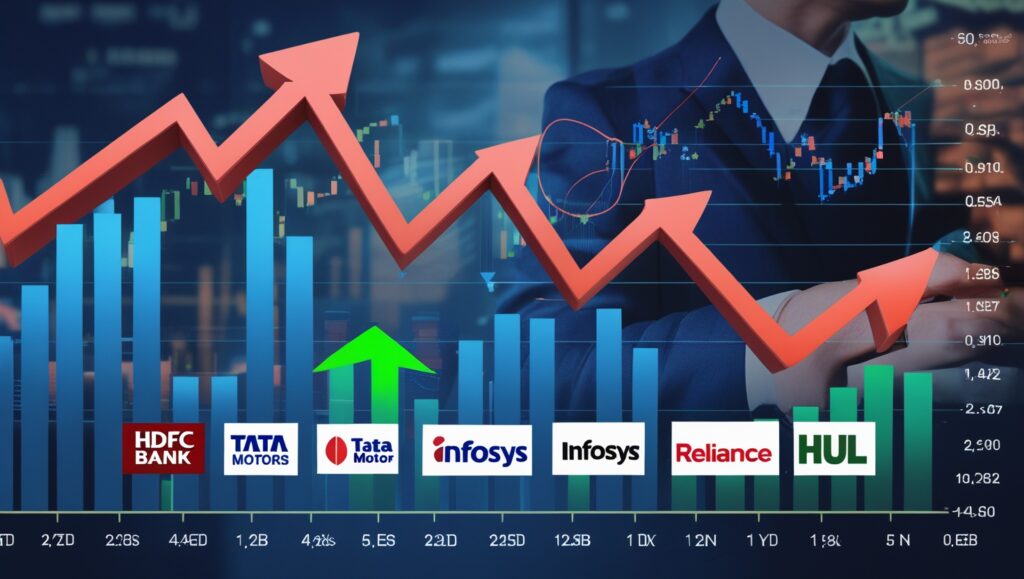A Comprehensive Guide for Investing in the stock market can be a daunting experience, especially if you are new to it. The Bombay Stock Exchange (BSE), one of the oldest stock exchanges in Asia, plays a vital role in India’s economy. In this comprehensive guide. We will cover everything you need to know about the Bombay Stock Exchange, including its history, functions, indices, and trading procedures.
Introduction
The Bombay Stock Exchange (BSE) was established in 1875 and is the oldest stock exchange in Asia. It is headquartered in Mumbai, India, and is the first stock exchange in the world to obtain ISO 9001:2000 certification. BSE provides an efficient and transparent marketplace for trading in equities, debt instruments, derivatives, and mutual funds. It is also a leading stock exchange in terms of listed companies and market capitalization.
History of Bombay Stock Exchange
The Bombay Stock Exchange was established in 1875. As “The Native Share and Stock Brokers Association,” which was later renamed the Bombay Stock Exchange in 1956. It was initially formed by a group of brokers who used to gather under a banyan tree in Mumbai to trade stocks. In 1986, BSE introduced the SENSEX, India’s first stock market index. Which tracks the performance of the top 30 companies listed on the exchange.
BSE Functions and Role in the Indian Economy
BSE plays a crucial role in the Indian economy by providing a platform. For companies to raise capital through the issuance of securities such as shares and debentures. It also provides an efficient and transparent marketplace for investors to buy and sell securities. BSE’s activities also include monitoring and regulating the market, ensuring investor protection, and promoting investor education.
BSE Indices
SENSEX
The SENSEX, also known as the BSE 30, is India’s most widely tracked stock market index. It represents the performance of the top 30 companies listed on the Bombay Stock Exchange. The SENSEX is calculated using the free-float market capitalization weighted methodology, which means that the index is calculated based on the market capitalization of the companies listed on the exchange, adjusted for the number of shares available for trading.
Other Indices
Apart from the SENSEX, BSE also calculates and publishes other indices such as the BSE 100, BSE 500, BSE Midcap, and BSE Small Cap. These indices represent the performance of companies with different market capitalizations and provide investors with a more comprehensive view of the stock market.
BSE Trading Procedures
Trading Session
BSE operates on a T+2 settlement cycle, which means that the settlement of trades takes place two working days
after the trading day. BSE conducts two trading sessions – the pre-opening session and the continuous trading session.
During the pre-opening session, which lasts for 15 minutes, orders are collected, modified, or canceled. The pre-opening session provides an opportunity for the market to discover the opening price, which is the price at which the first trade takes place during the continuous trading session.
The continuous trading session starts immediately after the pre-opening session and lasts for 6 hours, from 9:15 am to 3:30 pm (Indian Standard Time). During this session, orders are matched continuously, and trades are executed in real-time.
Trading Hours
BSE’s trading hours are from Monday to Friday, except for public holidays. The exchange remains closed on Saturdays and Sundays. BSE observes trading holidays as per the Indian government’s holiday list.
Trading Platforms
BSE offers multiple trading platforms, including the BOLT (BSE On-Line Trading) system, which is a fully automated trading platform that facilitates trading in all securities listed on the exchange. BSE also offers a web-based trading platform called BSEWEBx, which enables investors to trade through their browsers.
Trading Mechanism
BSE uses a price-time priority mechanism to match buy and sell orders. This means that the first order entered into the system at a particular price is given priority over subsequent orders entered at the same price.
Order Types
BSE allows investors to place various types of orders, including market orders, limit orders, stop-loss orders, and iceberg orders. Market orders are executed at the prevailing market price, while limit orders are executed at a specified price or better. Stop-loss orders are triggered when the market price reaches a specified level, and iceberg orders allow investors to place large orders without revealing the full quantity.
How to Invest in BSE
Opening a Trading Account
To invest in BSE, investors need to open a trading account with a broker who is a member of the exchange. Investors can choose from a wide range of brokers, including full-service brokers, discount brokers, and online brokers. The broker will provide the investor with a unique client code and a trading password that is required to place orders on the exchange.
Placing an Order
Once the trading account is opened, investors can place orders through various modes such as phone, email, or online trading platforms. Investors can place buy or sell orders for securities listed on the exchange based on their investment goals and risk appetite.
Tips for Investing in BSE
Investing in the stock market carries risk, and it is important to do thorough research before investing. Some tips for investing in BSE include:
Diversify your portfolio by investing in different sectors and companies
Invest for the long term and avoid frequent trading
Follow a disciplined approach and avoid emotional investing
Keep a watchful eye on the market and your investments
Consult a financial advisor before investing
BSE Regulations
SEBI
BSE is regulated by the Securities and Exchange Board of India (SEBI), which is the primary regulator of the securities market in India. SEBI’s role includes regulating and supervising stock exchanges, protecting the interests of investors, and promoting the development of the securities market.
Listing Requirements
BSE has strict listing requirements that companies must meet to be listed on the exchange. The requirements include minimum net worth, minimum public shareholding, and profitability criteria. The listing requirements ensure that only financially sound and well-governed companies are listed on the exchange.
Disclosure Requirements
BSE also has strict disclosure requirements for companies listed on the exchange. Companies are required to make regular disclosures regarding their financial performance, shareholding patterns, and other material information that may impact their stock prices. These disclosures help investors make informed investment decisions and ensure transparency in the market.
Conclusion
The Bombay Stock Exchange is one of the oldest and largest stock exchanges in Asia, with a rich history dating back to 1875. BSE provides a platform for companies to raise capital and investors to invest in a wide range of securities, including stocks, bonds, and derivatives.
Investing in BSE carries risk, but it also provides opportunities for investors to generate wealth over the long term. By following a disciplined approach and investing in financially sound and well-governed companies, investors can potentially achieve their financial goals.
FAQs
BSE and NSE are both stock exchanges in India, but they differ in terms of their trading mechanisms, listing requirements, and the types of securities they trade.
To invest in BSE, investors need to open a trading account with a broker who is a member of the exchange. Investors can place orders for securities listed on the exchange based on their investment goals and risk appetite.
BSE’s trading hours are from Monday to Friday, except for public holidays. The exchange remains closed on Saturdays and Sundays.
SEBI is the primary regulator of the securities market in India. It regulates and supervises stock exchanges, protects the interests of investors, and promotes the development of the securities market.
BSE has strict listing requirements that companies must meet to be listed on the exchange. The requirements include minimum net worth, minimum public shareholding, and profitability criteria.



